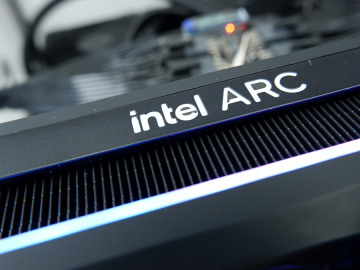
High-performing companies are setting themselves apart with strategic AI implementations and risk management practices.
Generative AI is no longer just a buzzword; it has become an integral part of business operations worldwide. According to McKinsey’s latest global survey, the adoption of generative AI has nearly doubled within a year, with 65% of organizations now using it regularly. This rapid integration signals a shift from experimentation to deriving tangible business value from AI technologies.
Key Findings: Rapid Adoption and Growing Impact
Several interesting trends have emerged as organizations increasingly integrate generative AI into their workflows. Not only is there a substantial uptick in adoption rates, but businesses also report significant cost reductions and revenue gains across various functions. High-performing companies are setting themselves apart with strategic AI implementations and risk management practices. At the same time, the influence of technology extends into personal lives, blurring the lines between professional and private use. Furthermore, the rise of AI is accompanied by growing concerns about accuracy, intellectual property, and cybersecurity, highlighting the need for robust governance frameworks.
Surging AI Adoption
Generative AI adoption has surged dramatically, with 65% of organizations now using it in at least one business function, up from 33% in the previous year. This increase is part of a broader trend in AI adoption, which has risen to 72% across various AI technologies, up from a stagnant 50% over the past six years. The professional services sector, in particular, has seen the most significant jump in AI usage.

Material Benefits and Revenue Gains
Organizations are experiencing concrete benefits from generative AI, reporting both cost reductions and revenue increases. Human resources departments have seen the most significant cost decreases, while supply chain and inventory management have reported notable revenue gains. These early successes highlight the potential of generative AI to drive efficiency and growth across diverse business functions.
Expanding Use Across Business Functions
Generative AI is being adopted across multiple business functions, with marketing and sales, product and service development, and IT leading the way. The survey indicates that AI is no longer confined to isolated projects but is increasingly integrated into core business processes. Half of the organizations are using AI in two or more functions, demonstrating a deeper penetration of AI capabilities within businesses.
Risks and Challenges: Navigating the AI Landscape
As businesses embrace generative AI, they must also navigate the accompanying risks. The survey highlights significant concerns that organizations must address, such as inaccuracy and intellectual property infringement. Without proper governance and risk mitigation strategies, these challenges could undermine the benefits of AI adoption.
Inaccuracy and IP Infringement
Despite the benefits, generative AI also brings significant risks. Inaccuracy is the most commonly reported risk, affecting use cases across various functions, from customer interactions to content creation. Intellectual property infringement and cybersecurity are also major concerns, with nearly 44% of organizations experiencing at least one negative consequence from AI use.
Lack of Governance and Risk Mitigation
The survey reveals a gap in AI governance, with few organizations implementing robust risk-related practices. Only 18% have an enterprise-wide council for AI governance, and just one-third require risk mitigation controls as part of their technical skill sets. This lack of comprehensive governance could hinder the sustainable growth of AI technologies.
High Performers: Best Practices and Strategic Approaches
A small group of organizations is leading the way in generative AI adoption, setting benchmarks for others to follow. These high performers not only realize significant business value but also implement best practices that mitigate risks and enhance their AI strategies. Understanding their approaches can provide valuable insights for other businesses that want to leverage AI effectively.
Leading the Way
A small group of high performers stands out, attributing more than 10% of their EBIT to generative AI. These organizations use AI in an average of three business functions and are more likely to develop proprietary AI models or significantly customize existing ones. They also take a proactive approach to risk, implementing a range of best practices from early-stage risk reviews to comprehensive data governance strategies.
Learning from Leaders
High performers offer valuable insights for other organizations looking to scale their AI capabilities. They emphasize the importance of strategic planning, risk management, and continuous improvement in AI implementation. By adopting similar practices, other businesses can better navigate the complexities of AI integration and maximize their return on investment.
See also: AI Adoption is on the Rise, But Barriers Persist
Preparing for the Next Wave: AI in 2024 and Beyond
The McKinsey survey results indicate that generative AI adoption will continue to reshape business landscapes globally. Emerging trends suggest AI will become more embedded in everyday operations, driving sophisticated applications and deeper integration across business functions. To stay ahead, organizations are expected to continuously update their AI strategies, invest in advanced AI capabilities, and foster a culture of innovation.
- Increased Customization and Proprietary Models: Survey respondents indicate a likely shift from off-the-shelf solutions to developing customized or proprietary models to meet specific needs, offering a competitive edge through tailored AI applications.
- Focus on Ethical AI: As AI becomes more pervasive, there is an increasing emphasis on ethical AI practices, including transparency, fairness, and accountability. Organizations are expected to implement robust frameworks to ensure responsible AI use.
- Integration with Emerging Technologies: Generative AI is projected to integrate increasingly with other emerging technologies, such as IoT, blockchain, and edge computing, creating new opportunities for innovation and efficiency.
- Enhanced AI Governance: The need for comprehensive AI governance is becoming more critical. Companies are expected to establish dedicated AI councils and implement rigorous risk management practices to navigate the complexities of AI deployment.
- Talent Development: Investing in AI education and training is essential to building a skilled workforce capable of effectively leveraging AI technologies. Organizations are focusing on upskilling employees and attracting top AI talent.
- Regulatory Compliance: As regulatory landscapes evolve, companies need to stay informed and compliant with new AI-related regulations to avoid legal and reputational risks.
By focusing on these key insights from the McKinsey survey and preparing for future trends, businesses can better position themselves to harness the full potential of generative AI. This proactive approach will enable them to drive innovation, efficiency, and growth in an increasingly competitive market.






